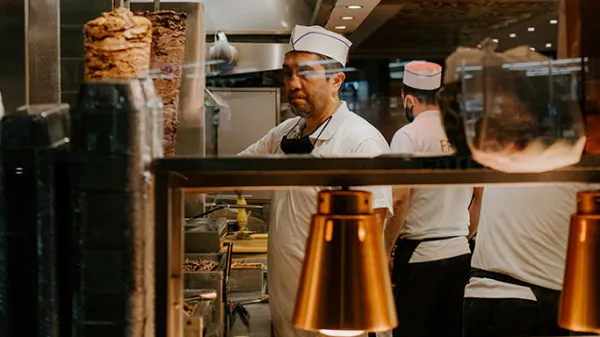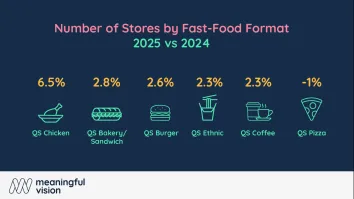
Can technology fully offset lingering labour shortage pains?
One in six hospitality jobs currently lie vacant.
Competition among firms to recruit and retain team members is heating up, as one in six (16%) hospitality jobs currently lie vacant, according to the latest Business Confidence Survey from CGA and Fourth.
96% of business leaders surveyed are now envisaging shortages in either front or back of house roles, and nearly three quarters (73%) in both.
Only 18% of leaders feel confident about their recruitment and retention over the next 12 months, a significant fall from the 67% who felt confident in the last Business Confidence Survey three months ago.
59% of leaders now anticipate hiring staff at a greater rate than usual this year. Labour has been further hit by absences, with leaders reporting that an average of 6% of staff are “currently in isolation and unable to work.”
To attract and keep hold of staff, over 70% leaders say they have offered better pay and stepped up their levels of communication as part of their retention strategies, whilst around two thirds have tried to cultivate the right working culture and support staff wellbeing and mental health.
CGA and Fourth suggest the use of pay as a retention tool is “rapidly inflating wage bills across the hospitality sector”, which already faces mounting food, drink, supply and utility costs. Leaders who have increased pay have done so by an average of 11% for current staff, and by 13% for newly hired team members.
“These figures illustrate the full scale of hospitality’s recruitment and retention crisis,” said Karl Chessell, CGA’s director – hospitality operators and food, EMEA. “Thousands of businesses are now critically short of staff, while many of those who have sufficient labour face a fight to keep hold of it. Gaps at front and back of house and fast-rising wage costs threaten to derail the industry’s recovery, and sustained, targeted government support is now urgently needed to tackle the problem.”
Sebastien Sepierre, managing director – EMEA, Fourth, added: “Hospitality is nothing without people and the sector is in a desperate battle to find the staff it needs to rebuild after a devastating 18 months. With the right business landscape, hospitality has the potential to drive the UK’s economic recovery. But the current operational environment is extremely tough and these results lay bare the workforce challenges senior leaders must solve, especially in light of the key festive trading period on the horizon.”
A report published by Bizimply and hospitality consultancy Hospitality Mavericks suggested that hospitality operators need to “combine investment in technology with a new approach to people management” if they are to recruit and retain employees.
Surveying senior operators representing hundreds of outlets, employing thousands of staff, in the UK, Europe and the U.S., the report found that since the first lockdown in 2020, 70% of respondents have rolled out new or updated digital tools, and 59% have implemented new people policies.
However, nearly three-quarters (72%) either have “no formal people strategy, or one only partly developed.”
49% said they would like to implement more agile working methods whilst 41% want to give their front-line teams greater decision-making powers.
Resistance to change was also cited by 34% of respondents, whilst one-fifth (21%) said their front-line teams lacked the capability to implement change, and a similar number (23%) felt customer-facing staff “didn't understand the 12-month plan for the business.”
40% recognised implementing new technology could make their staff teams more efficient, but only 34% thought it could improve employees' experience and job satisfaction. More than half (55%) feel they have invested “sufficiently” in digitalisation to optimise their business.
In response to the current staffing shortage, 21% of respondents notably are taking no additional steps to recruit new employees or retain existing team members. A third (32%) are increasing their training and development, 21% are increasing pay and 10% improving staff benefits. 11% are looking to change working patterns, such as offering four-day weeks.
"The findings of our research make fascinating reading as the hospitality sector emerges from 15 months of on-and-off lockdowns, which gave many operators unprecedented time to review their business, and accelerated the pace of change in many areas, particularly technology,” Bizimply CEO Conor Shaw said.
"However, what's also clear is that as an industry we are still largely working with a ‘top down' approach to people management, even though we know that empowering our front-line teams leads to a better result for our business. We see more agile working practices delivering transformational change in many other sectors, and now is surely the time for hospitality to catch up.”
























